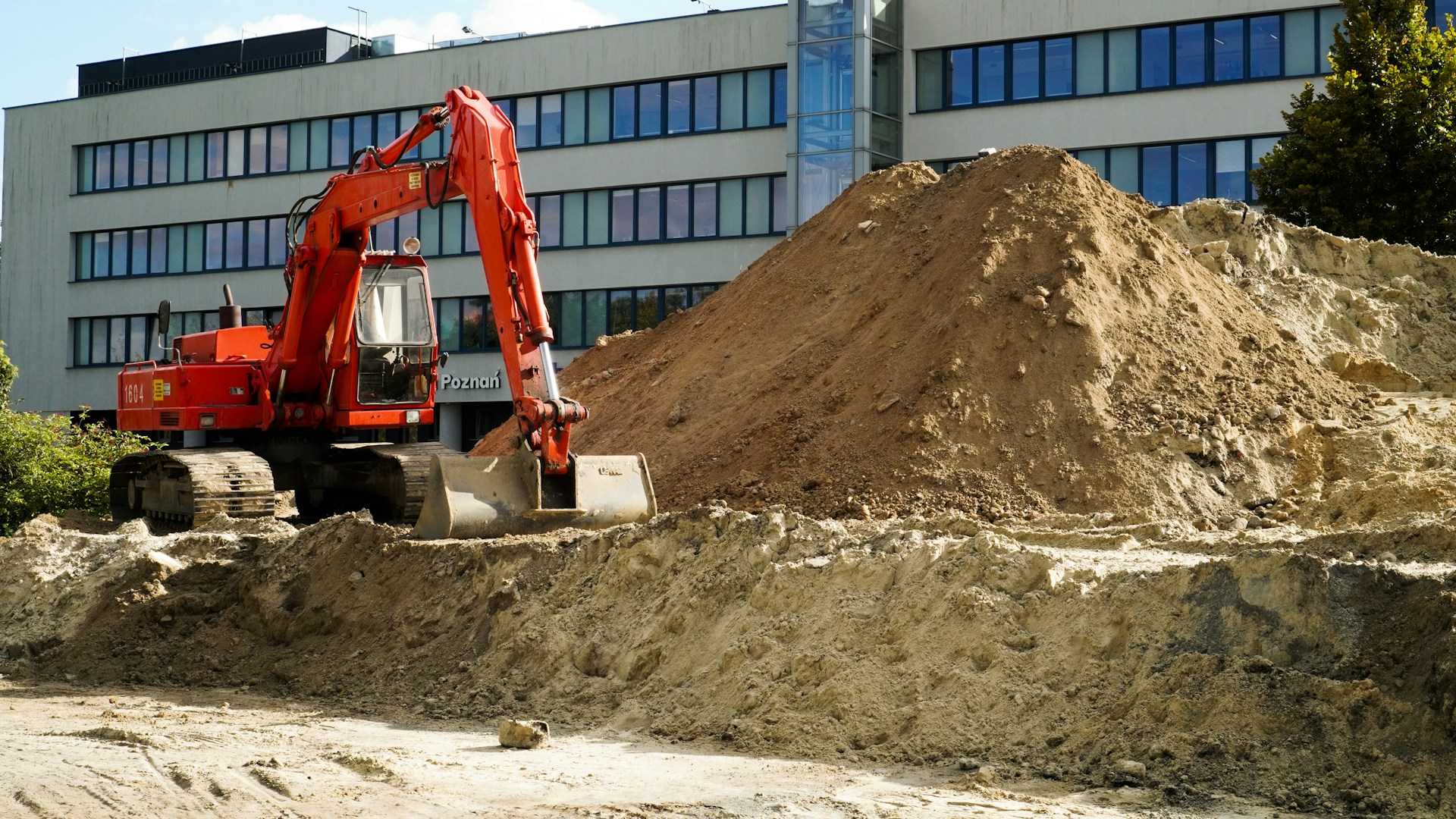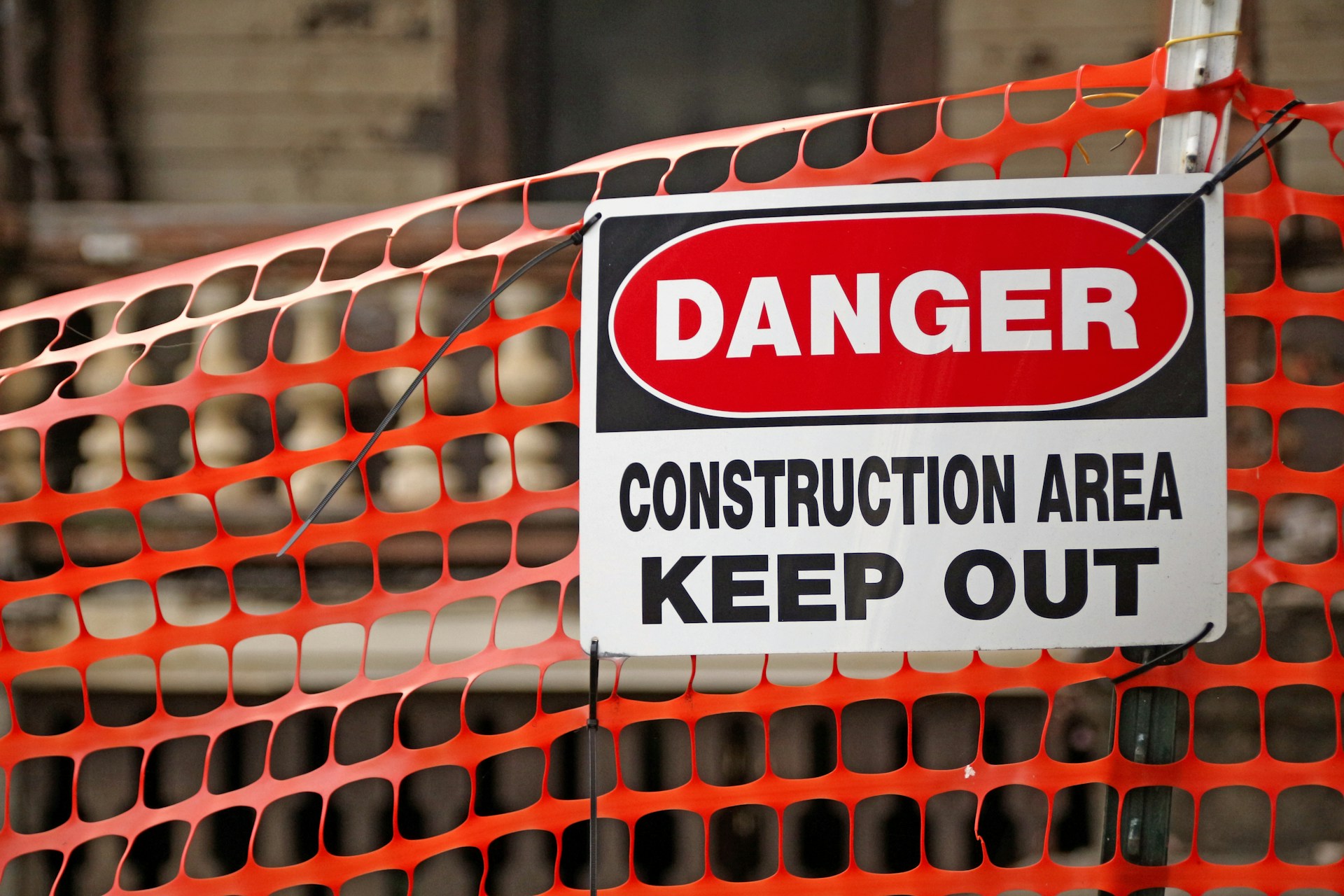Building inspection certification serves as a professional credential that validates an inspector’s competence in examining structures for compliance with building codes and safety standards. At EB3 Construction, we recognize the critical role these certifications play in ensuring the integrity and safety of both commercial and residential buildings.
Certified building inspectors demonstrate proficiency in evaluating all aspects of a structure, from its foundation to its roof. They examine the installation of electrical, plumbing, and HVAC systems, as well as adherence to fire safety codes and structural requirements. This comprehensive approach allows for the identification of potential issues before they become serious problems.
Organizations like the International Code Council (ICC) typically issue these certifications following rigorous testing. For construction professionals, obtaining certification opens doors to career advancement and expanded responsibilities in building safety. As general contractors, we rely on certified inspectors to validate our work and ensure that projects meet or exceed all applicable regulations.
What Are the Education and Experience Requirements?

To become a certified building inspector, most states require at least a high school diploma along with relevant work experience in construction trades. While some employers prefer candidates with bachelor’s degrees in engineering or architecture, many accept a combination of education and practical field experience.
For those looking to enhance their qualifications, many community colleges offer specialized programs in building inspection technology. These programs typically lead to a certificate or an associate’s degree, with courses covering essential areas such as:
- Building inspection techniques
- Construction technology
- Drafting and blueprint reading
- Vocational subjects related to construction
- Basic mathematics like algebra and geometry
- Business management principles
Becoming a building inspector usually involves gaining hands-on experience in construction trades. Successful candidates often have backgrounds in areas such as:
- Carpentry
- Electrical work
- Plumbing
- General contracting
This practical experience is invaluable, providing inspectors with a deep understanding of building systems and construction processes. Many in the field start as tradespeople before moving into inspection roles.
It’s important to note that specific requirements can vary by state and municipality. Some jurisdictions may have additional certification or licensing requirements. Aspiring building inspectors should research the exact qualifications needed in their intended work area.
Ultimately, the most successful building inspectors combine a strong educational foundation with extensive practical experience. This blend of theoretical knowledge and hands-on skills enables them to effectively assess buildings for safety, code compliance, and structural integrity.
| Educational Requirement | Details |
| High School Diploma | Required by most employers, complements work experience in construction trades. |
| Associate’s Degree or Certificate | Community colleges offer programs in building inspection technology, covering topics like construction technology and blueprint reading. |
| Bachelor’s Degree | Preferred by some employers, particularly in engineering or architecture. |
| Vocational Courses | Blueprint reading, algebra, geometry, and writing are useful. Courses in business management help those running their own inspection business. |
| Hands-on Experience | Experience in construction trades like carpentry, electrical work, or plumbing is invaluable for practical understanding. |
How Do Licensing and Certification Programs Work?
At EB3 Construction, we emphasize the importance of proper licensing and certification for building inspectors. Most states and localities require building inspectors to have a license or certification to ensure they possess the necessary knowledge and skills for effective inspections. Although specific requirements vary between jurisdictions, some common elements include:
State Licensing Programs
Some states have developed their individual licensing programs for building inspectors. These programs typically involve:
- Meeting minimum education and experience requirements
- Passing a state-specific examination
- Completing continuing education to maintain the license
State programs often tailor their requirements to local building codes and regulations.
Certification Through Professional Associations
In other cases, states may require or accept certifications from recognized professional associations. Some of the most prominent include:
- International Code Council (ICC)
- International Association of Plumbing and Mechanical Officials
- International Association of Electrical Inspectors
- International Association of Certified Home Inspectors
These organizations typically offer a range of certifications for various specialties within building inspection. The certification process usually involves:
- Meeting prerequisite education or experience requirements
- Studying approved materials and building codes
- Passing a comprehensive examination
- Fulfilling continuing education requirements to maintain certification
Examination Process
Whether for state licensing or association certification, examinations are crucial. These tests assess knowledge of:
- Building codes and standards
- Construction methods and materials
- Inspection procedures and protocols
- Safety regulations
Exams may be computer-based or written, often including both multiple-choice questions and practical scenarios.
Continuing Education Requirements
Maintaining an active license or certification typically requires ongoing education. This ensures that inspectors remain up-to-date with changes in building codes, emerging construction technologies, and best practices. Requirements can vary widely; for example:
- In New York, Building Safety Inspectors must complete 6 hours of annual in-service training
- Code Enforcement Officials in the same state need 24 hours of continuing education annually
- ICC certifications often require 45 hours of continuing education over a 3-year period
At EB3, we prioritize ongoing training and education for our inspectors to ensure they remain at the forefront of industry standards.
Specialization and Additional Certifications
Many inspectors choose to pursue additional certifications in specialized areas such as:
- Energy efficiency
- Green building practices
- Accessibility compliance
- Fire safety systems
These additional qualifications can enhance an inspector’s expertise and career opportunities.
Understanding the nuances of licensing and certification programs is crucial for anyone looking to enter or advance in the building inspection field. While the process can be complex, it ensures that inspectors have the knowledge and skills necessary to protect public safety and maintain the integrity of our built environment.
No table output available
What Are the Different Types of Building Inspector Certifications?

As general contractors, we collaborate closely with building inspectors from various specializations to ensure code compliance throughout the construction process. The field of building inspection offers a variety of certification options to address different aspects of construction and safety. Some of the most common types include:
Residential and Commercial Inspections
Two foundational certifications that are central to many inspection careers are:
- Residential Building Inspector (B1) – Focuses on one and two-family dwellings
- Commercial Building Inspector (B2) – Covers larger, more complex structures
These certifications enable inspectors to assess overall building safety, structural integrity, and code compliance for specific property types. We frequently engage with B1 and B2 certified inspectors at various stages of our projects.
Specialized System Inspections
In addition to general building inspections, there are certifications for specific building systems:
- Electrical Inspector
- Plumbing Inspector
- Mechanical Inspector (HVAC systems)
- Fire Inspector
- Energy Inspector
These specialized inspectors focus deeply on their respective areas, ensuring that each critical building system meets applicable codes and standards. Their expertise complements our work in implementing these systems to the highest standards of safety and efficiency.
Plan Review and Advanced Certifications
For those involved in the pre-construction phase or more complex projects:
- Building Plans Examiner (B3) – Reviews construction documents before building begins
- Certified Building Official (CBO) – Holds the highest level of certification, often assuming leadership roles
We value the insights of B3 certified examiners during the planning stages, as their early input can prevent potential issues before construction begins.
Niche and Emerging Certifications
The evolving construction industry has led to more specialized certifications:
- Coastal Construction Inspector – Suitable for areas with unique environmental challenges
- Accessibility Inspector/Plans Examiner – Concentrates on ADA compliance
- Green Building Inspector – Specializes in sustainable construction practices
- Property Maintenance and Housing Inspector – Focuses on existing structures
These niche certifications reflect the growing complexity of modern construction and the need for specialized knowledge in certain areas. As builders, we appreciate inspectors with these focused skill sets for projects with unique requirements.
Certification Paths and Exams
The International Code Council (ICC) is the primary organization offering these certifications, each associated with rigorous exams. Many inspectors obtain multiple certifications to enhance their expertise and employability across different inspection domains. The exam codes (like B1, B2, B3) serve as important identifiers for specific certifications within the ICC system.
| Certification | Focus Area | Issuing Body |
|---|---|---|
| Residential Building Inspector (B1) | One and Two-Family Dwellings | International Code Council (ICC) |
| Commercial Building Inspector (B2) | Larger and More Complex Structures | International Code Council (ICC) |
| Building Plans Examiner (B3) | Pre-construction Document Review | International Code Council (ICC) |
| Certified Building Official (CBO) | Leadership Roles | International Code Council (ICC) |
| Electrical Inspector | Electrical Systems | International Association of Electrical Inspectors (IAEI) |
| Plumbing Inspector | Plumbing Systems | International Code Council (ICC) |
| Mechanical Inspector | HVAC Systems | International Code Council (ICC) |
| Fire Inspector | Fire Safety Systems | International Code Council (ICC) |
| Energy Inspector | Energy Compliance | International Code Council (ICC) |
| Accessibility Inspector/Plans Examiner | ADA Compliance | International Code Council (ICC) |
As general contractors, we understand the value of each type of certified inspector in a project. Their specialized knowledge helps ensure that every aspect of our construction meets or exceeds code requirements, ultimately resulting in safer, more compliant buildings for our clients.
What Are the Career Benefits and Outlook for Certified Building Inspectors?
Certified building inspectors enjoy a range of compelling career advantages in today’s construction industry. While the overall job outlook remains steady, certification opens doors to increased opportunities and professional growth. Here are the key benefits and projections for this essential role:
Competitive Compensation
Building inspection offers attractive earning potential for qualified professionals. As of 2024, the median annual wage for construction and building inspectors was $72,120, according to the U.S. Bureau of Labor Statistics. This figure outpaces the national median for all occupations, reflecting the specialized skills and responsibilities required.
Inspectors working in engineering services tend to command even higher salaries, with a median of $76,940. This premium underscores the value placed on technical expertise in more complex inspection environments.
Employment Landscape
While overall employment growth for building inspectors is projected to remain relatively flat through 2033, the profession offers solid job stability. About 15,000 openings are anticipated annually during this period, primarily driven by the need to replace retiring workers and those transitioning to other careers.
This steady demand ensures a consistent flow of opportunities for new entrants and experienced professionals alike. Certified inspectors are particularly well-positioned to capitalize on these openings, as employers increasingly prioritize credentials that demonstrate proven competence.
Diverse Work Settings
Certified building inspectors have the flexibility to work across various sectors of the industry. The distribution of employment opportunities typically breaks down as follows:
- Local government: 35% of jobs
- Engineering services: 17%
- Construction firms: 10%
- State government: 4%
- Self-employed workers: 4%
This diverse landscape allows inspectors to find roles that align with their preferred work environments and career goals. Whether you thrive in a public sector setting or aspire to entrepreneurship, certification provides a foundation for success across the field.
Career Advancement Pathways
Certification serves as a springboard for ongoing professional development and career progression. As certified inspectors gain experience, they may advance to senior roles, specialize in niche areas like green building or seismic safety, or move into management positions overseeing inspection teams.
The evolving nature of building codes and construction technologies also creates opportunities for certified inspectors to become subject matter experts, trainers, or consultants within the industry. This potential for growth keeps the career path dynamic and rewarding over the long term.
Enhanced Credibility and Trust
One of the most valuable benefits of certification is the boost it provides to an inspector’s professional credibility. Certification from recognized bodies like the International Code Council (ICC) demonstrates a commitment to maintaining the highest standards of knowledge and ethical practice.
This enhanced trust can lead to increased responsibilities, better projects, and improved relationships with clients and stakeholders throughout the construction process. In an industry where safety and compliance are paramount, the certified inspector’s expertise becomes an invaluable asset.
| Benefit | Description |
|---|---|
| Competitive Compensation | Median annual wage for building inspectors in 2024 reached $72,120, with higher earnings in engineering services. |
| Employment Landscape | Approximately 15,000 job openings anticipated annually, driven by retirements and career transitions. |
| Diverse Work Settings | Opportunities across local government, engineering services, construction firms, and self-employment. |
| Career Advancement Pathways | Certification can lead to senior roles, specialization, or management positions. |
| Enhanced Credibility and Trust | Certification boosts professional credibility and trust, leading to better projects and client relationships. |
Ultimately, while the building inspection field may not see explosive growth in the coming years, it remains a stable and rewarding career path for those who invest in certification. The combination of competitive salaries, diverse work opportunities, and potential for advancement makes it an attractive option for both new entrants and experienced professionals seeking to elevate their careers in the construction industry.
Conclusion: Taking the Next Steps Toward Building Inspection Certification

Building inspection certification offers a path to a stable, rewarding career in construction safety and compliance. By obtaining the right education, gaining relevant experience, and securing appropriate certifications, professionals can position themselves for success in this essential field. Whether pursuing certification through state programs or national organizations like the International Code Council (ICC), it is crucial to understand the specific requirements in your jurisdiction and area of specialization.
The certification process requires dedication and commitment but offers substantial benefits in return. Certified building inspectors enjoy greater professional recognition, expanded career opportunities, and the satisfaction of playing a vital role in ensuring public safety. As the construction industry evolves, certified inspectors are well-positioned to stay at the forefront of building safety practices and technologies.
Continuing education is a crucial component of maintaining and advancing certifications. Many programs offer specialized courses and credentials that allow inspectors to expand their expertise in areas like energy efficiency, accessibility compliance, or disaster resilience. This ongoing professional development not only fulfills recertification requirements but also enhances an inspector’s value to employers and the community.
For those considering a career in building inspection, now is an excellent time to take action. Research certification options in your area, connect with local building departments or professional associations, and start mapping out your education and experience plan. Remember that certification is not just about meeting minimum requirements—it’s about committing to the highest standards of building safety and professional excellence.
The path to becoming a certified building inspector may seem challenging, but the rewards are significant. Your expertise will contribute directly to safer, more resilient communities. As you embark on this career journey, know that you’re joining a community of dedicated professionals working to uphold and advance building safety standards across the nation.
At EB3 Construction, we understand the vital role that certified building inspectors play in the construction process. If you’re interested in learning more about how professional inspections contribute to our projects or have questions about pursuing a career in building inspection, we invite you to contact our team for more information.




